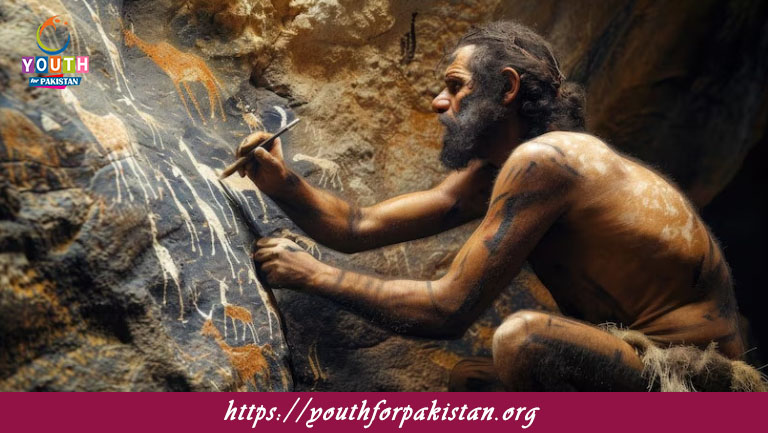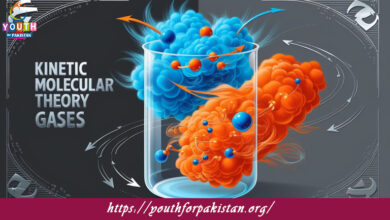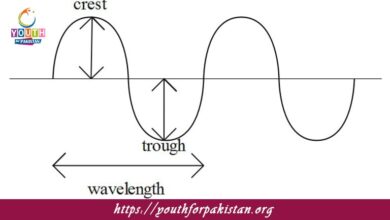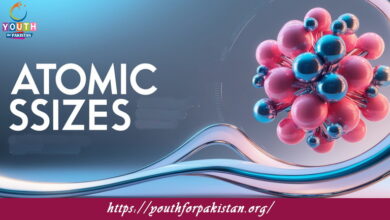Neo-Darwinism‟S MDCAT MCQs with Answers

Welcome to the Neo-Darwinism‟S MDCAT MCQs with Answers. In this post, we have shared Neo-Darwinism‟S Multiple Choice Questions and Answers for PMC MDCAT 2024. Each question in MDCAT Biology offers a chance to enhance your knowledge regarding Neo-Darwinism‟S MCQs in this MDCAT Online Test.
Which concept is central to Neo-Darwinism?
a) Lamarckism
b) Natural selection
c) Inheritance of acquired characteristics
d) Use and disuse
Neo-Darwinism integrates Darwin’s theory with:
a) Mendelian genetics
b) Lamarckian inheritance
c) Blending inheritance
d) Acquired traits
According to Neo-Darwinism, the source of genetic variation is:
a) Mutations
b) Environmental changes
c) Use and disuse
d) Lamarckian inheritance
Which process is emphasized in Neo-Darwinism as driving evolution?
a) Genetic drift
b) Gene flow
c) Natural selection
d) Mutation
In Neo-Darwinism, genetic variation is primarily due to:
a) Mutations and recombination
b) Environmental factors
c) Inheritance of acquired traits
d) Lamarckian mechanisms
Which of the following is a key component of Neo-Darwinian theory?
a) Adaptive radiation
b) Artificial selection
c) Inheritance of acquired characteristics
d) Genetic variation
The Neo-Darwinian concept that describes the changes in allele frequencies in populations is known as:
a) Natural selection
b) Evolutionary pressure
c) Genetic drift
d) Speciation
In Neo-Darwinism, the theory that explains the mechanism of evolution through genetic changes is:
a) Mutation theory
b) Genetic drift
c) Natural selection
d) Gene flow
Neo-Darwinism emphasizes the role of which of the following in evolution?
a) Stabilizing selection
b) Disruptive selection
c) Directional selection
d) All of the above
According to Neo-Darwinism, the preservation of advantageous traits occurs through:
a) Genetic drift
b) Natural selection
c) Gene flow
d) Mutation
Which of the following is a major source of genetic variation in Neo-Darwinism?
a) Sexual reproduction
b) Environmental changes
c) Lamarckian inheritance
d) Use and disuse
Neo-Darwinism combines Darwin’s theory with the principles of:
a) Lamarckian evolution
b) Modern genetics
c) Inheritance of acquired traits
d) Uniformitarianism
The Neo-Darwinian perspective on evolution includes the idea that:
a) Evolution occurs solely due to natural selection
b) Evolution is influenced by genetic variation and selection
c) Evolution happens only through environmental changes
d) Evolution is a result of acquired characteristics
Which process is described by Neo-Darwinism as contributing to genetic variation within a population?
a) Genetic drift
b) Natural selection
c) Gene flow
d) Mutation
In Neo-Darwinism, the term “adaptive evolution” refers to:
a) Evolution driven by random mutations
b) Evolution guided by the environment
c) Evolution through natural selection of advantageous traits
d) Evolution through genetic drift alone
The concept of “survival of the fittest” is associated with:
a) Neo-Darwinism
b) Lamarckism
c) Genetic drift
d) Gene flow
Which of the following best describes the Neo-Darwinian view of speciation?
a) Speciation occurs through genetic drift alone
b) Speciation is the result of natural selection acting on genetic variation
c) Speciation is due to the inheritance of acquired characteristics
d) Speciation occurs only through environmental changes
In Neo-Darwinism, the concept of “fitness” refers to:
a) The ability to survive and reproduce
b) The ability to adapt to environmental changes
c) The overall health of an organism
d) The size of an organism
Which of the following mechanisms is considered a driving force in Neo-Darwinian evolution?
a) Natural selection
b) Lamarckian inheritance
c) Use and disuse
d) Environmental changes
Neo-Darwinism places emphasis on which type of genetic variation?
a) Mutations
b) Inherited traits
c) Environmental adaptations
d) Acquired characteristics
The term “genetic drift” in Neo-Darwinism refers to:
a) Changes in allele frequencies due to random events
b) Changes in traits due to natural selection
c) Movement of genes between populations
d) Changes in genetic material due to environmental pressures
Which process in Neo-Darwinism involves the movement of alleles between populations?
a) Genetic drift
b) Gene flow
c) Mutation
d) Natural selection
According to Neo-Darwinism, the primary source of genetic diversity is:
a) Mutations
b) Environmental changes
c) Acquired traits
d) Gene flow
Which of the following does NOT contribute to genetic variation in Neo-Darwinism?
a) Mutations
b) Genetic drift
c) Inheritance of acquired traits
d) Sexual reproduction
The Neo-Darwinian theory that describes the gradual change in species over time is called:
a) Punctuated equilibrium
b) Gradualism
c) Catastrophism
d) Uniformitarianism
Neo-Darwinism asserts that new traits arise in populations through:
a) Mutations
b) Environmental pressures
c) Use and disuse
d) Inheritance of acquired characteristics
The concept of “survival of the fittest” is best associated with:
a) Neo-Darwinism
b) Lamarckian evolution
c) Genetic drift
d) Gene flow
Which Neo-Darwinian mechanism describes the process where individuals with certain traits are more likely to survive and reproduce?
a) Natural selection
b) Genetic drift
c) Gene flow
d) Mutation
Neo-Darwinism explains the origin of new traits in populations primarily through:
a) Mutations and recombination
b) Environmental changes
c) Inheritance of acquired traits
d) Genetic drift
The role of genetic recombination in Neo-Darwinism is to:
a) Increase genetic diversity
b) Decrease genetic diversity
c) Eliminate genetic variation
d) Stabilize genetic traits
In Neo-Darwinism, which process can lead to the development of new species through geographical isolation?
a) Speciation
b) Genetic drift
c) Gene flow
d) Mutation
Neo-Darwinism attributes the primary cause of evolutionary change to:
a) Natural selection acting on genetic variation
b) Environmental pressures alone
c) Acquired traits being inherited
d) Use and disuse of traits
Which Neo-Darwinian concept describes how populations adapt to their environment over time?
a) Adaptive evolution
b) Gene flow
c) Genetic drift
d) Mutation
In Neo-Darwinism, genetic diversity within a population is enhanced by:
a) Sexual reproduction
b) Genetic drift
c) Acquired traits
d) Use and disuse
The Neo-Darwinian concept of “fitness” refers to:
a) An organism’s reproductive success
b) The size and strength of an organism
c) The ability to survive in harsh conditions
d) The overall health of an organism
Neo-Darwinism asserts that evolution is driven by:
a) The differential survival and reproduction of individuals
b) The inheritance of acquired traits
c) Environmental pressures alone
d) Genetic drift alone
The process of “adaptive radiation” in Neo-Darwinism refers to:
a) Rapid evolution of diverse species from a common ancestor
b) Gradual evolution of species in response to environmental changes
c) Evolutionary changes due to genetic drift
d) Evolution of traits through natural selection alone
Which of the following processes is considered random and affects allele frequencies in a population?
a) Genetic drift
b) Natural selection
c) Gene flow
d) Mutation
The Neo-Darwinian view of evolution incorporates:
a) Both natural selection and genetic variation
b) Only natural selection
c) Only genetic variation
d) Inheritance of acquired characteristics
Which mechanism of evolution involves changes in allele frequencies due to random sampling effects?
a) Genetic drift
b) Natural selection
c) Gene flow
d) Mutation
The study of evolutionary processes that drive the formation of new species is known as:
a) Speciation
b) Genetic drift
c) Gene flow
d) Natural selection
The Neo-Darwinian theory suggests that new traits arise primarily through:
a) Genetic mutations
b) Environmental changes
c) Use and disuse
d) Inheritance of acquired traits
The term “fitness” in the context of Neo-Darwinism most accurately refers to:
a) An organism’s ability to reproduce and pass on its genes
b) The organism’s overall health
c) The organism’s physical strength
d) The organism’s size
Which of the following mechanisms contributes to the adaptation of organisms to their environment according to Neo-Darwinism?
a) Natural selection
b) Genetic drift
c) Gene flow
d) Mutation
In Neo-Darwinism, the role of genetic recombination is to:
a) Increase genetic diversity within a population
b) Decrease genetic diversity
c) Stabilize genetic traits
d) Eliminate genetic variation
If you are interested to enhance your knowledge regarding Physics, Chemistry, Computer, and Biology please click on the link of each category, you will be redirected to dedicated website for each category.





